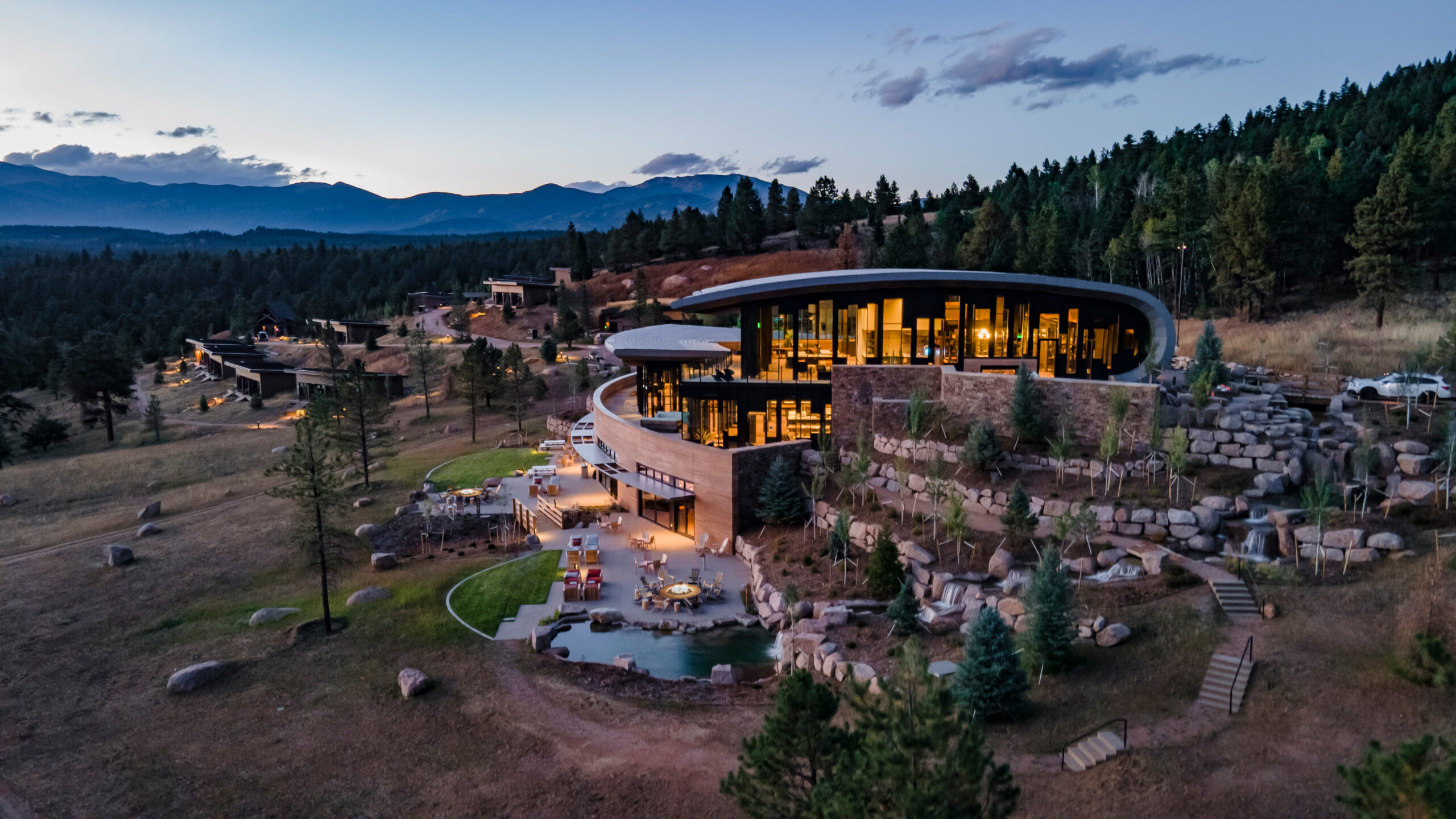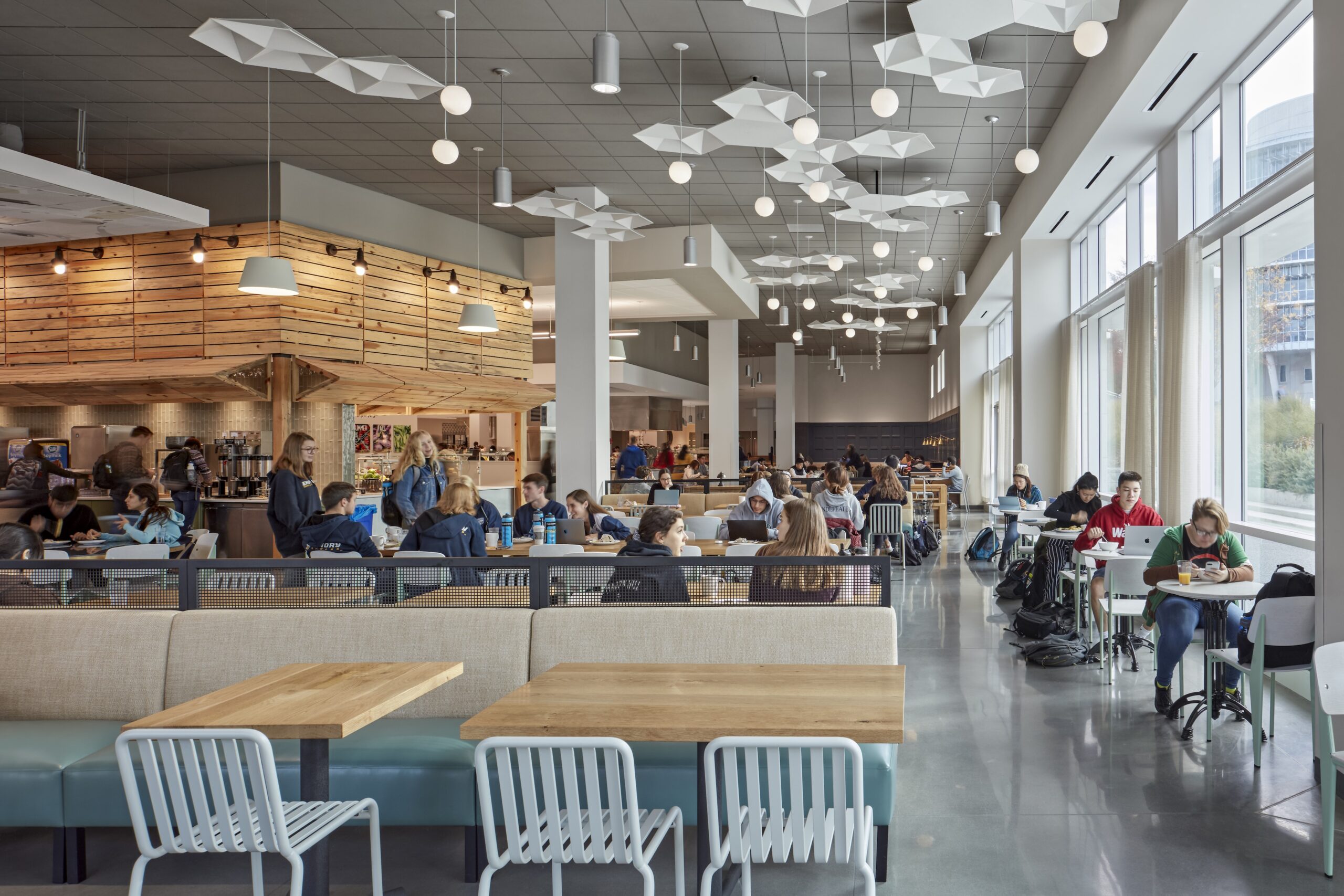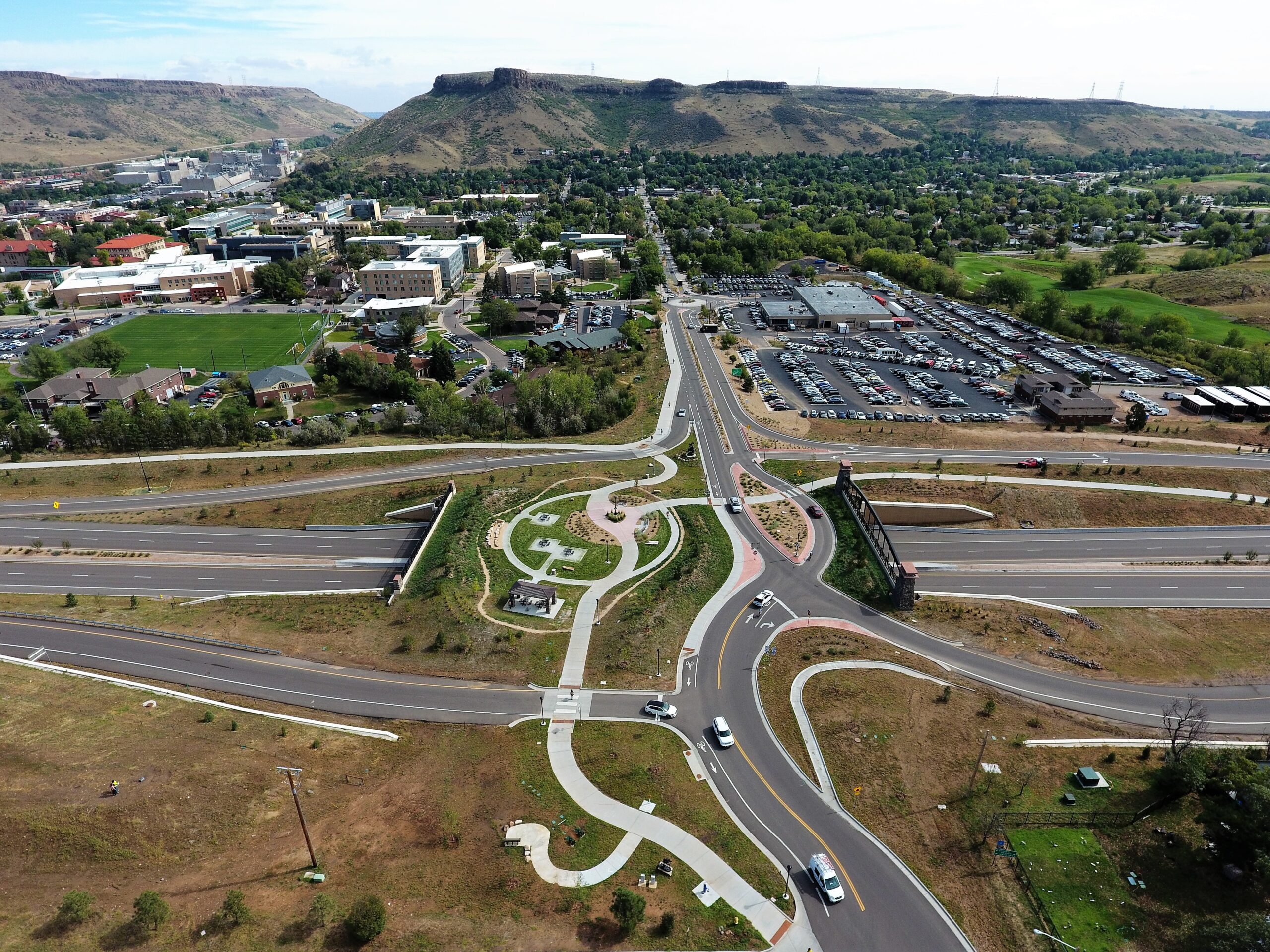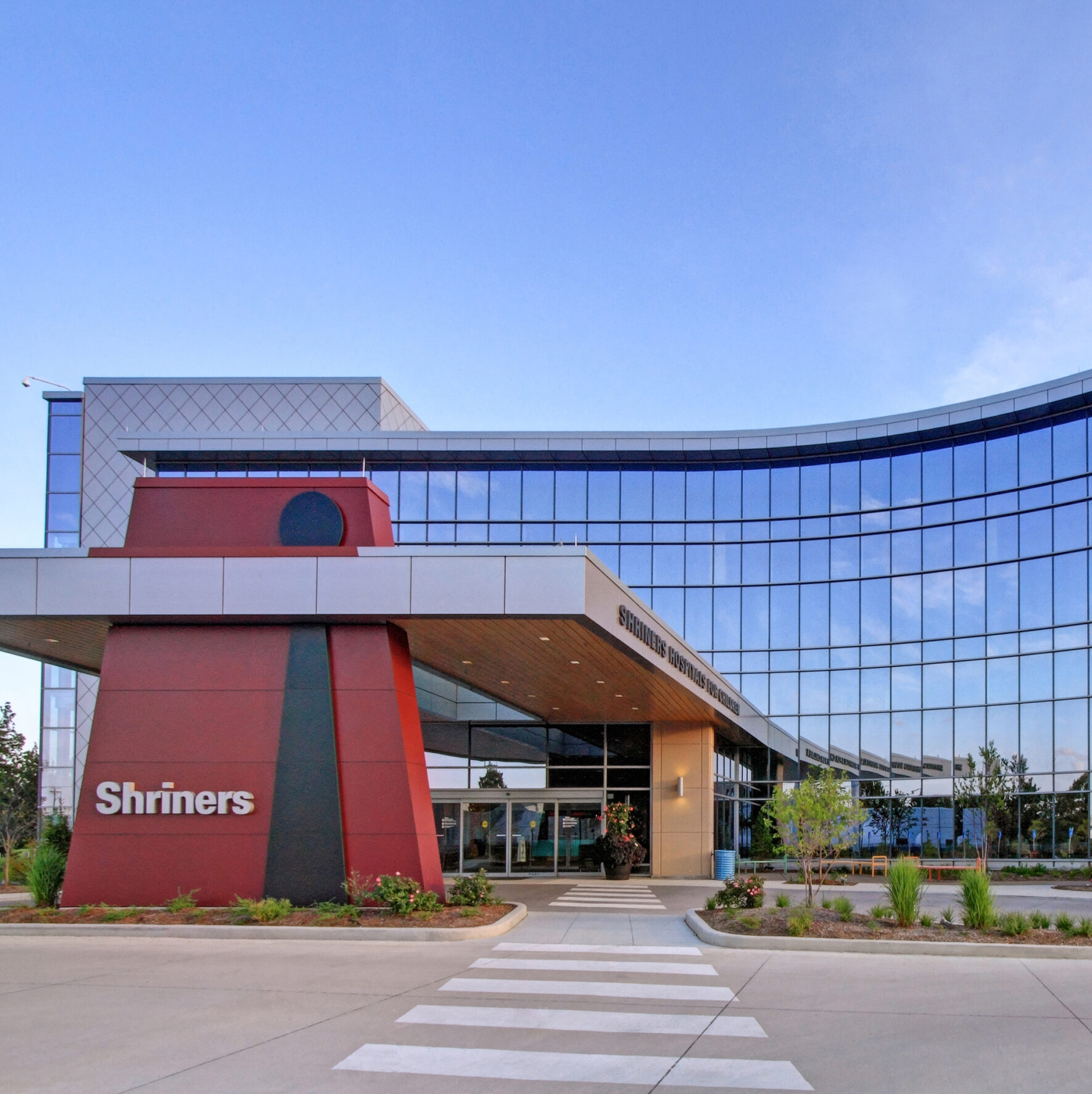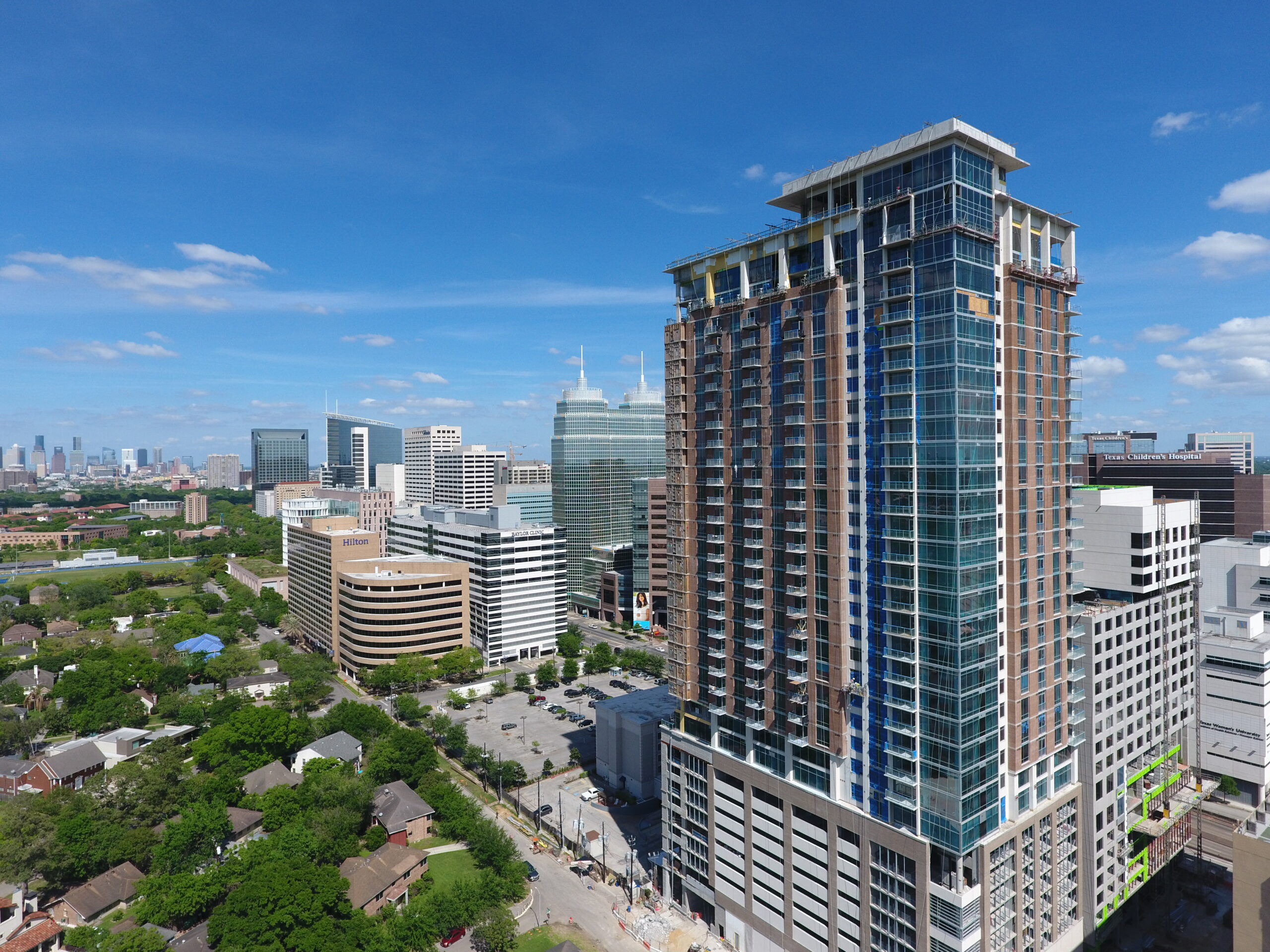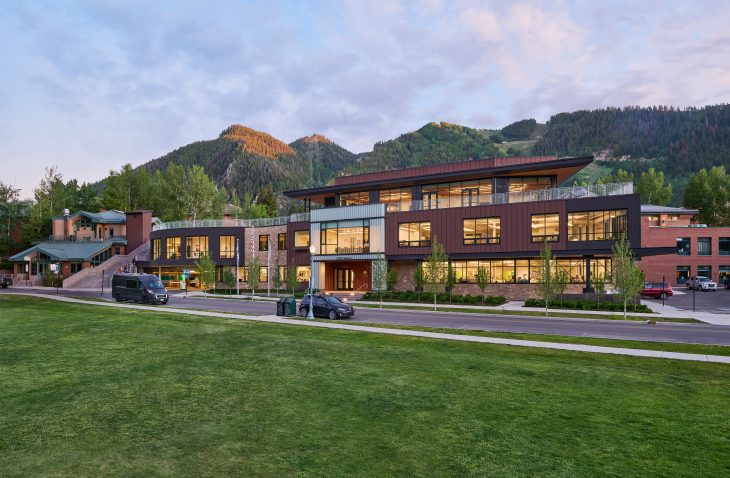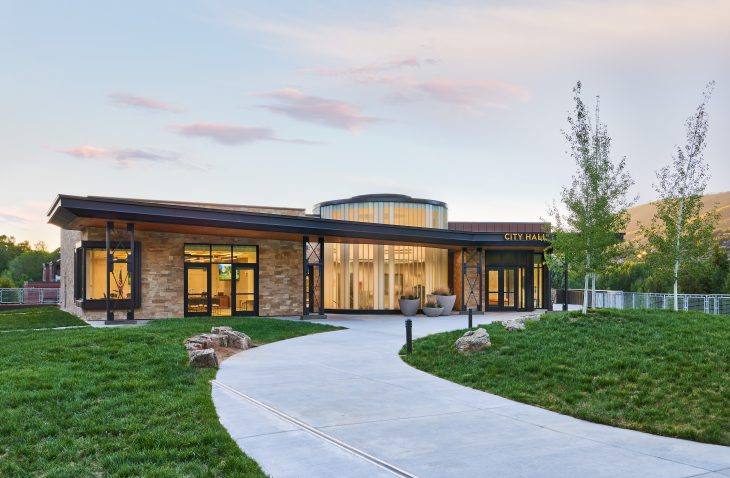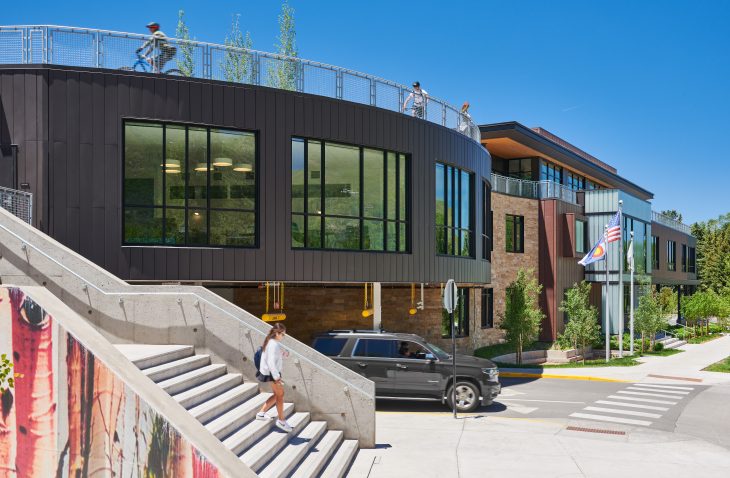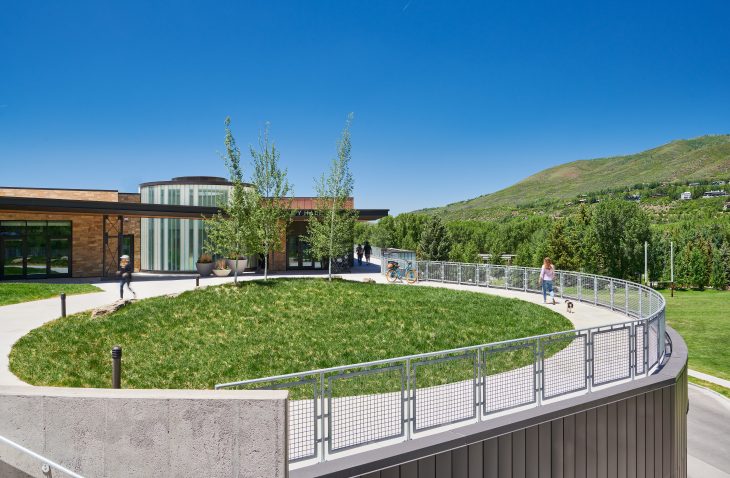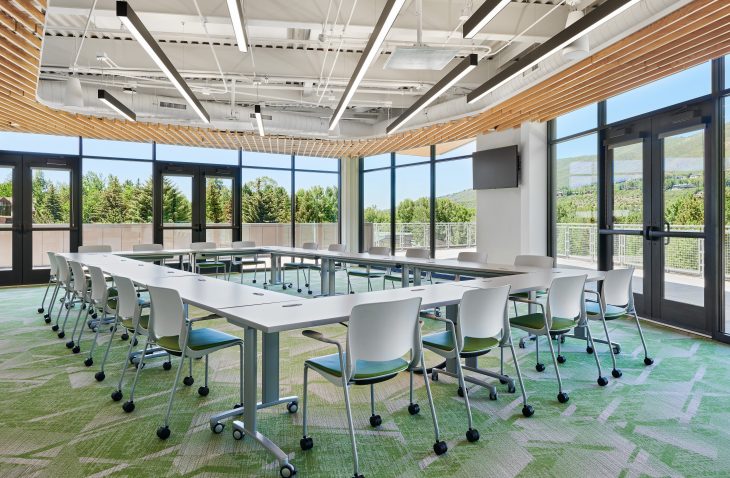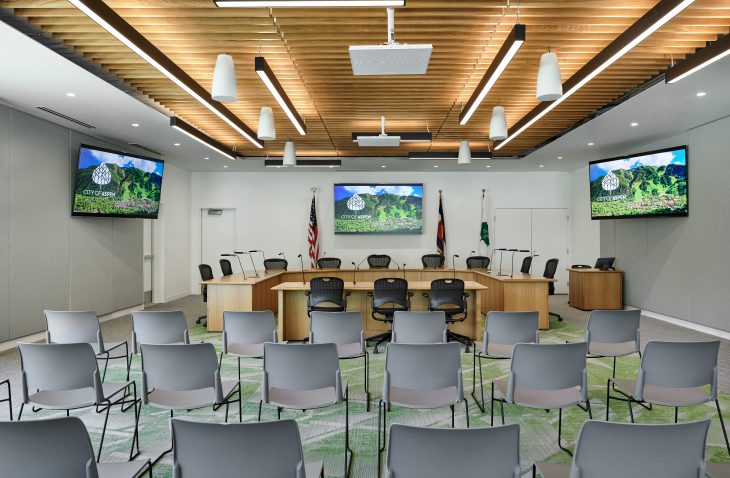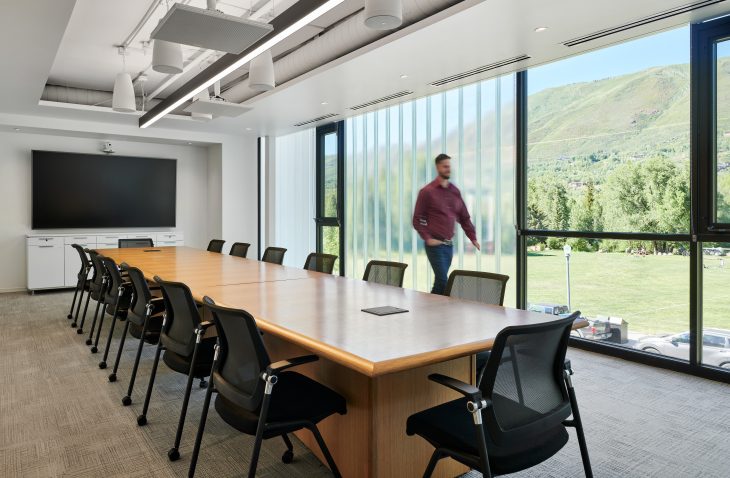New City Hall with Geoexchange System
The City of Aspen’s new city hall is a leading-edge showcase of electrification and sustainability with a one-of-a-kind geoexchange system designed by IMEG Corp. The project came with significant challenges, including achieving the city’s electrification and carbon reduction goals and its tight site on a hillside. The design team was successful in finding innovative and cost-effective solutions to meet the city’s goals and carbon reduction initiatives.
IMEG provided engineering design for the 37,000-sf city hall, which houses multiple city departments consolidated from other offices around Aspen, community meeting space for public use, and the main city council chambers.
IMEG was instrumental in finding innovative solutions to meet the city’s goals and carbon reduction initiatives while providing a layout that could be easily modified as the city’s needs expand. IMEG engineers worked closely with their firm’s internal sustainability team and the architect to optimize energy performance and provide an extremely low energy use building.
With the building optimized, IMEG needed to provide a highly efficient electrified system to meet the carbon reduction goals while also meeting the needs of the building. Initially the team pursued a traditional vertical bore geoexchange system, but the excessive cost and limited area for the wells proved to be problematic.
The team found that Aspen’s history as a mining town presented a one-of-a-kind opportunity for an alternate type of geoexchange system. The town’s mines greatly impacted the underground water dynamics of the valley, which meant that each minute 1,000 to 1,500 gallons of water were gushing through an adjacent 1980s-era parking garage’s groundwater dewatering system. Given that the new building would be connecting to this parking garage, IMEG engineers harnessed this energy source by connecting it to a series of buffer tanks and heat exchangers to create usable energy for heating and cooling. The temperature of the water running through the system averages below 45 degrees F, providing the city hall with a free cooling source. Running the water through high-efficiency heat pumps provides hot water for not only the building but also for snow melt on the city’s public walkways and a grand staircase on the site. This solution provided a very economical and efficient geoexchange system that would have otherwise cost the city around $1 million.
The project earned LEED Gold and WELL Silver.
View the project highlight video.
